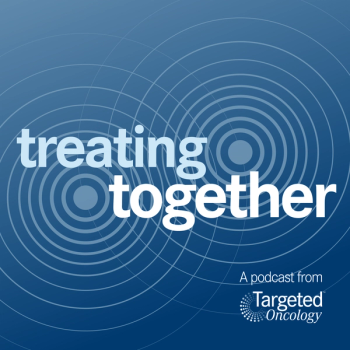
Anticipating Novel Options for the RAI-Refractory DTC Armamentarium
In season 4, episode 6 of Targeted Talks, Warren Swegal, MD, takes a multidisciplinary look at the RAI-refractory differentiated thyroid cancer treatment landscape, including the research behind 2 promising systemic therapy options.
In season 4, episode 6 of Targeted Talks, Warren Swegal, MD, a head and neck cancer surgeon at Allegheny Health Network, discusses the treatment armamentarium for radioactive iodine (RAI)-refractory differentiated thyroid cancer (DTC).
Swegal says that out of all the published research around DTC, only a small number of studies have been focused the RAI-refractory DTC population. For this reason, the National Comprehensive Cancer Network (NCCN) Guidelines are a helpful resource for deciding how to approach treatment. In most cases, Swegal says, surgery is the best initial treatment option.
“If it's local disease or regional disease surgeries, that tends to be the first option. If surgery isn't an option, you can always consider external beam radiation to slow down disease progression or other ablative techniques, such as alcohol ablation or radiofrequency ablation all to get rid of either regional or local disease, Swegal says. “However, for disease that is non resectable, or metastatic, where surgery is not an option, and radioactive iodine isn't an option, then you come to your systemic therapies,” he adds.
In terms of systemic therapies for RAI-refractory DTC, Swegal says that tyrosine kinase inhibitors (TKIs) like lenvatinib (Lenvima) and cabozantinib (Cabometyx) have been showing promise in clinical trials.
In the
Findings from
Overall, Swegal says that the future of treatment for RAI-refractory DTC looks promising. However, the toxicities associated with TKIs raise some concern. In addition, these agents have yet to be compared head-to-head.









































